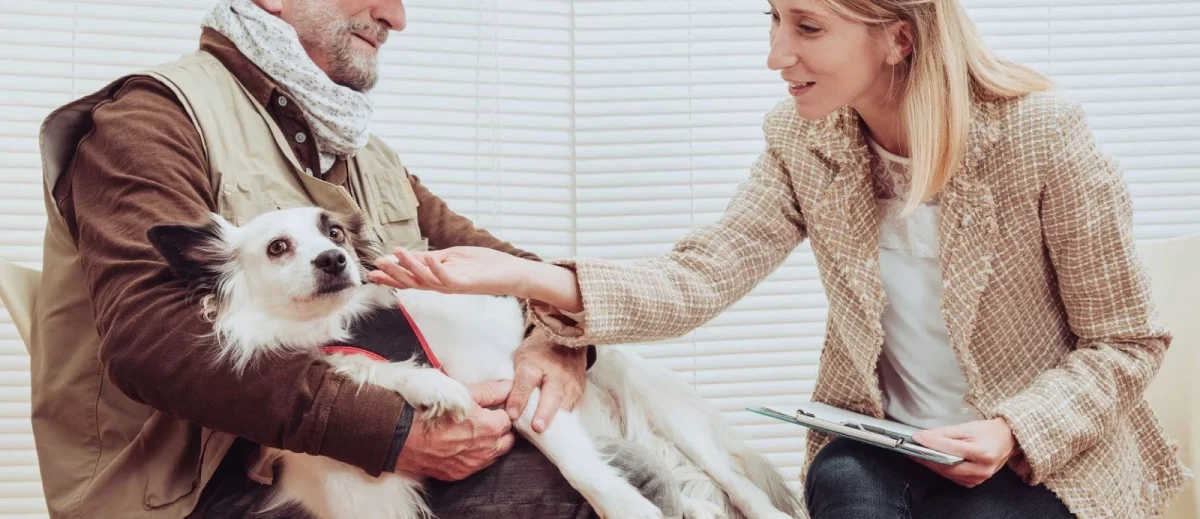
Veterinary Social Work, a relatively new field is an area of social work practice, that caters to the human needs that arise in the intersection of veterinary medicine and social work practice. Veterinary Social Work is an area of social work.
WHAT IS VETERINARY SOCIAL WORK?
Veterinary social work supports people as they deal with various issues. Issues related to medical care and treatment decisions for their animals.
The four main areas of veterinary social work are :
- Grief and pet loss
- Animal-assisted interactions
- The link between human and animal violence
- Compassion fatigue and conflict management
HOW TO BECOME A VETERINARY SOCIAL WORKER?
A veterinary social worker is a member of the veterinary team, who helps humans with their relationships with animals. If you love working with both animals and people, then a career that combines the two might be an ideal fit. As a veterinary social worker you would need to work with both animals as well as with their owners and also with veterinary staff or even animal control and animal humane officers.
Veterinary social workers provide valuable services to help support the relationships between people and animals. This is a comparatively new field but it is indeed a fascinating career to pursue. Just like any other social work profession, veterinary social work jobs also have some stipulated requirements that you will need to meet to qualify for the position.
You will need to earn a BSW (Bachelor in Social Work) or a related mental health degree. Before you take specialized veterinary social worker coursework. While a BSW may not be a fixed requirement for your veterinary social worker program, it gives you an advantage. Some institutions may ask for a Bachelor’s degree in Social Work while others may accept liberal arts degree programs with coursework in areas like Psychology, Sociology, Anthropology, Philosophy, or Economics.
Advanced degrees, including MSW (Masters in Social Work) degree programs, provide much more specialized knowledge than a BSW. Depending on your career goals and location, you may need to obtain an MSW degree, particularly if you are planning to become a licensed social worker.
ADVANTAGES OF BECOMING A VETERINARY SOCIAL WORKER
- Social work, in general, focuses on helping people. It is through challenges and living healthier, more fulfilling lives. As a veterinary social worker, you will be able to advocate for and improve strength, and positive animal-human interactions.
- Diverse work settings and clientele – As a veterinary social worker, you may need to provide your assistance, in diverse work settings. These jobs tend to go hand in hand with places that provide animal care services. These jobs may also be found in Academia while doing research or educating others in this field.
- Skill strengthening – Social work requires ongoing training and skill development. This profession requires several skills that center around communication, support as well as crisis. And conflict resolution. This will require you to master areas like active listening, critical thinking, and communication.
- Opportunities for career growth – Veterinary social work is a relatively new career path available to social workers. Thus there is a steady opportunity for growth. Moreover, the overall employment of social workers is expected to grow faster between now and 2030.
CONCLUSION
There is a strong connection between our mental health. And the health of our animal companions. This is a rewarding career choice. It is for those who are passionate about animals, mental health, and fostering healthy animal-human dynamics.
https://kolahalstudio.com/single-blog.php?blog=Musical%20analysis
https://kfmindia.in/uncategorized/image-consultancy-improving-image-to-attain-professional-goals/